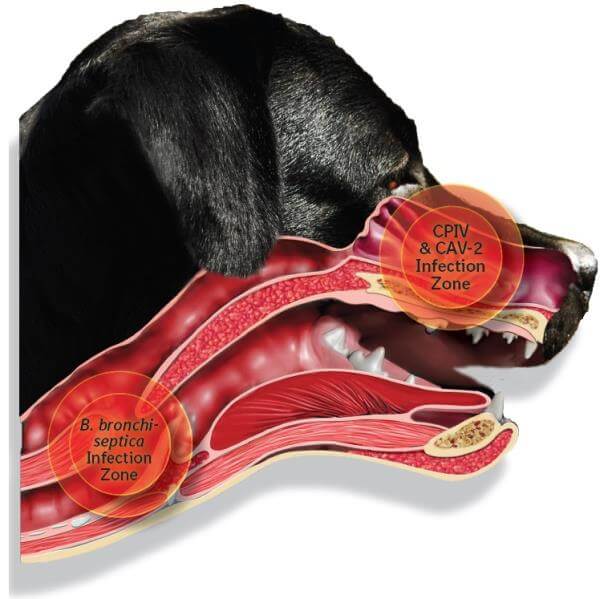Introduction:
If you’ve noticed that your beloved canine companion has developed a persistent cough, it’s essential to address this symptom promptly. In this comprehensive article, we will explore the causes, diagnosis, and treatment options for dogs with a cough. Understanding the underlying reasons behind your dog’s coughing can help you provide appropriate care and ensure their well-being.
My Dog Has a Cough: Common Causes and Symptoms:
A cough in dogs can stem from various factors, ranging from minor irritations to more serious health conditions. Common causes of coughing in dogs include:
- Respiratory Infections:
Infections such as kennel cough, canine influenza, or pneumonia can lead to coughing in dogs. These infections are often accompanied by other symptoms like nasal discharge, sneezing, and fever.
- Allergies:
Similar to humans, dogs can develop allergies that trigger coughing. Allergens such as pollen, dust mites, or certain foods can irritate their respiratory system, resulting in a cough.
- Heart Disease:
Heart conditions, including congestive heart failure, can cause coughing in dogs. The cough may be accompanied by other signs like difficulty breathing, fatigue, and a decreased ability to exercise.
- Collapsed Trachea:
Small breed dogs, such as Chihuahuas and Yorkshire Terriers, are prone to a condition called collapsed trachea. This can lead to a chronic cough, especially during excitement or exercise.
- Foreign Object Ingestion:
If your dog has swallowed a foreign object, it can irritate the airway and cause coughing. Other symptoms may include choking, gagging, or difficulty swallowing.
Recommended:
- Petco Review: The Power of Together
- PetSmart Review: Where Pets Inspire Us
- Hill’s Pet Nutrition Review: Pioneering Pet Health and Nutrition
- Royal Canine Review: Tailored Nutrition for Every Pet
- Chewy Review: Pet Care at Your Doorstep
Diagnosing and Treating a Cough in Dogs:
Proper diagnosis is crucial to determine the underlying cause of your dog’s cough. Consultation with a veterinarian is recommended to ensure accurate diagnosis and appropriate treatment. Diagnostic steps may include:
- Physical Examination:
The veterinarian will conduct a thorough physical examination, assessing your dog’s overall health, lung sounds, heart function, and other potential underlying factors.
- Diagnostic Tests:
Additional tests, such as blood work, X-rays, or even bronchoscopy, may be necessary to identify the cause of the cough. These tests can help rule out infections, assess heart health, or detect any abnormalities in the airways.
- Treatment Options:
The treatment plan for your dog’s cough will depend on the underlying cause. It may include:
– Antibiotics for bacterial infections.
– Antiviral medications for viral infections.
– Allergy management, such as avoiding triggers or using antihistamines.
– Heart medications to manage heart-related coughs.
– Cough suppressants to alleviate temporary coughing episodes.
– Surgical intervention for conditions like collapsed trachea or foreign object removal.
Preventing Coughing in Dogs:
While not all causes of coughing can be prevented, there are measures you can take to reduce the risk:
- Vaccinations:
Ensure your dog is up-to-date on vaccinations, including those for kennel cough and canine influenza, to minimize the risk of respiratory infections.
- Allergen Management:
Identify and minimize exposure to allergens that may trigger coughing episodes. Keep your home clean, use air purifiers, and consult with your veterinarian for allergy management strategies.
- Heart Health:
Regular veterinary check-ups and maintaining a healthy lifestyle, including a balanced diet and appropriate exercise, can help support your dog’s heart health.
- Supervision and Safety:
Keep a close eye on your dog during walks or playtime to prevent them from ingesting foreign objects that could lead to coughing or choking.
Conclusion:
If your dog has a cough, it’s important to investigate the cause and seek appropriate veterinary care. By understanding the potential causes, seeking accurate diagnosis, and following the recommended treatment plan, you can help alleviate your dog’s discomfort and ensure their overall well-being. Remember, early intervention and preventive measures are key to maintaining your dog’s respiratory health.
References:
- Cohn, L. A., & Norris, C. R. (2008). Demographic characteristics, clinical presentation, and outcomes of dogs with tracheal collapse: 151 cases (1995–2005). Journal of the American Veterinary Medical Association, 233(6), 936-940.
- Couto, C. G. (2009). Canine infectious respiratory disease complex (CIRDC). Veterinary Clinics: Small Animal Practice, 39(6), 987-1006.
- Fox, P. R., & Sisson, D. (2015). Canine cough: Infectious tracheobronchitis. In Textbook of Canine and Feline Cardiology (pp. 646-652). Elsevier.
- Landon, B. P., & Merlo, J. L. (2014). Canine respiratory disease: Update on canine infectious respiratory disease complex and canine influenza virus. Veterinary Clinics: Small Animal Practice, 44(3), 561-579.



